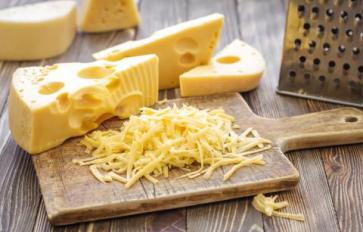
Most of us have been sucked into the ‘eat small meals more frequently’ advice given out by dieticians, nutritionists and the media in equal order, with varied results. However, new research points out that frequent snacking and small meals may be more of a hindrance than a help!
The Metabolic Conundrum of Small Meals
There have been studies that indicate that there’s no basis to the current dietary thought of small meals eaten more frequently aiding in a higher metabolism. Metabolism, or the burning of calories, basically depends on your body structure and build. The more muscles you have, the more calories you burn; which is why to raise your metabolism you have to work out to convert that latent fat into muscles. Three meals work just as fine for the metabolism.
Small Meals Does Not Mean Fewer Calories
When you keep eating small meals all through the day -- however healthy and nutritious your portions may be – you are spoon-feeding your body and basically teaching it to continuously receive food. This means your body will slowly get accustomed to eating more and more, and more – in effect, you are training your body to just keep eating. With plenty of snack food options available in the market, this also means that you will start to make nutrition mistakes, and end up ingesting far more calories than what you usually would on a no-snack, three-meal schedule.
Frequent, Small Meals Do Not Aid in Weight Loss or Blood Sugar Control
When you eat a proper meal that satiates you, and then go hungry till the next with no snacks in between, your body starts to burn the fat stored in it to provide for any energy needs, thus aiding in weight loss. The green tea or other caffeine that we ingest mildly aids in this process, making the body burn a little extra fat.
By allowing yourself to get a little hungry between meals, your body also learns to tolerate famine. But when you keep feeding the body small meals, all its energy needs are met by the carbohydrates you consume (even the fruits and veggies). The body then does not burn any stored fat to meet energy demands and so weight loss plateaus. Another major rub is that the body also loses the ability to self-regulate blood sugar spikes and crashes – so if you are accustomed to eating small meals at shorter time intervals and you miss even one meal, you will feel instant fatigue.
The Digestive Dangers of Grazing
Finally, let’s move on to the fact that the intestine needs to be empty for at least 90 minutes to start its cycle of optimum cleansing. When you graze on small meals, you overload the digestive system and make way for far too much bacterial growth within, often leading to infections and imbalances. People with constipation and acid-reflux may find grazing to be further detrimental to their digestion, leaving them cramped, bloated and with a general lack of appetite.
So while the jury may be out on whether to eat five to six smaller meals, or bigger but balanced three meals a day, remember the golden rules of eating that even Ayurveda prescribes. Go for portion control, don’t eat after sundown, drink warm water with meals and make sure your plate has more protein and fiber, medium carbs and little fat and sugar.
We’d love to know your take on this so do write in to us in the comments section below… Till then, eat healthy & stay happy!








